“Op, op, op, op…
Oppa Gangnam Style!”
That’s the lyrics to Korean pop song ‘Gangnam Style’, the first music video in history to break a billion (!) views on YouTube.
Coincidentally, it’s also the dance made infamous by Italian kumite superstar Luigi Busà, as he celebrated his 2012 victory in the WKF World Karate Championships by dancing on the mat in front of a cheering crowd in Paris, much to the dismay of his defeated opponent (and long-time rival) Rafael Aghayev.
But there’s more to Luigi Busà than sensational victory dances.
He’s first and foremost a fighter.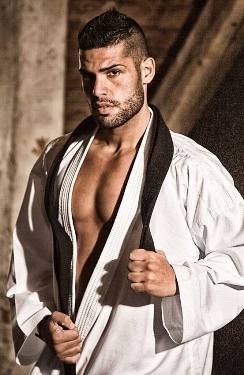
Although his boyish charm and contagious passion might initially give you the opposite impression, Luigi is dead serious when it comes to the tactics, techniques and theory of Karate.
Kumite in particular.
Although he’s still very young, he’s learned a lot from his numerous wins and losses – both in the street, the dojo and the arena.
Today he’s ready to share his insights with you.
Without further ado, I’m excited to present my exclusive interview with Luigi Busà – Italian, European and World Champion in kumite (-75 kg category), conducted at the ‘Karate Allstars’ camp in Italy, sponsored by Sportivart.
While he was doing some stretching, we talked about a lot of stuff; including his training, mentality, fear, fury, goals, upbringing, spirit and…
Balls.
(Lots of balls, actually.)
But I don’t want to spoil anything.
Let’s just say that if you’ve ever wondered what goes on in the head of a world-class kumite athlete, this is your chance right here.
Get ready to dive into the mind of Luigi Busà – World Kumite Champion.
I hope you’ll enjoy it.
Let’s go:
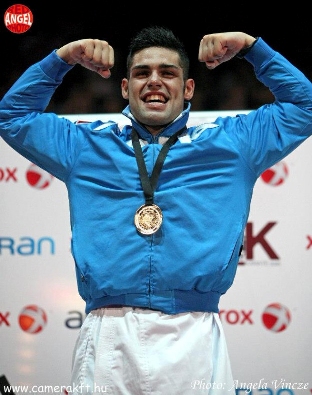 J (Jesse): First of all, when and why did you start Karate?
J (Jesse): First of all, when and why did you start Karate?
LB (Luigi Busà): “I started Karate at the age of four, because my father was a Karate sensei. The first time he took me to the dojo I instantly fell in love with Karate, and have been on this long journey ever since.”
J: Cool. Did you specialize in kumite (fighting) from the beginning, or did you practice kata too?
LB: “I practiced kata too, even taking part in some tournaments on occasion, but was not good at it. Therefore the kata world never attracted me.
However, now that I’m increasing my Karate knowledge, I enjoy watching great champions such as the Japanese athletes, or our Italian champions Maurino, Valdesi and Figuccio, but I never practiced it at middle-to-high level. Actually, not even middle level. I mostly spent my time in kumite because my father, and dojo, is specialized in kumite.”
J: So, when did you realize you could become a world-class champion in kumite?
LB: “I never realized this fact. Still nowadays I don’t realize it. Other people, such as my father or my personal trainers or the national coaches make me believe in my potential. Personally, I believe that if you constantly think you are #1 you will never be that. To truly be the best, you must be recognized in this role by others.”
J: That’s interesting, since the legendary Muhammad Ali once said: “I am the greatest – I said that even before I knew I was”.
LB: “Well, I think you always have to be humble, yet always feel like you could become the best, but respect your opponent regardless of his level. Sure, I’m aware that I’m strong, but about being the best… let’s just say I prefer when others say I can touch the roof of the world.”
J: I once wrote an article titled “The 3 Habits of Highly Effective Karate Fighters“. But I’m not as experienced as you when it comes to kumite. What do you think are the top 3 most important points for someone who wants to become good at kumite?
LB: “According to me, the most important points are actually three specific body parts: The head, the heart, and as we say in Italian; the balls – bravery.”
J: Please explain!
LB: “First the head: Because a champion is someone who has a lot of mindpower, thinks about the details and never stops evolving.
Then heart: Because practicing this sport, doing sacrifices, diets, being consistent for a long time requires a passionate heart. Without heart you can’t win.
Lastly balls: Because when you fight on a tatami, for example in the world championships in Paris with 20’000 people screaming, you really need some balls. Without courage, you will never reach the higher levels.”
J: Awesome. Speaking of courage though: Many people are afraid of doing kumite. What is your best advice to them?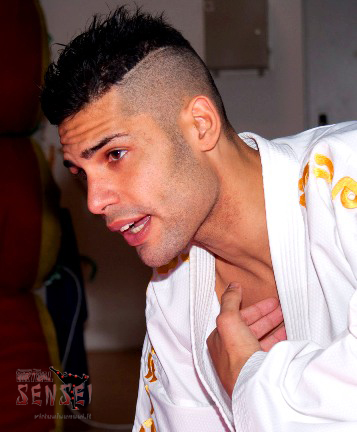
LB: “People who are afraid of doing kumite are often people who never practiced it enough, because kumite teaches a great deal of self control. Our techniques are performed at very high speed, but always with control.
Accidents happen, sure, even to experts and champions. But if you are constantly afraid of getting injured, maybe you are not suited to be fighting. To do kumite you need a little bit of courage. This can be developed.
I truly believe in fear and limits, but I also believe that they exist for a reason: To be overcome.
So, my suggestion for people who are afraid of fighting is to start practicing a little bit of extra kumite in their dojo. But if they never conquer this fear, even after practicing, it probably means that they are not suited to do kumite. Not everyone can, or has, to be a fighter.”
J: What are the 3 most commons mistakes you see people do in kumite?
LB: “Everyone is focused on doing great attacks, great techniques; but many forget to defend themselves, to block. In my opinion, a champion is someone who wins while receiving as few blows as possible – not the one who performs the most attacks. It’s the one who receives less damage.”
J: Right. In traditional Karate, this principle is echoed in the famous proverb known as “Karate ni sente nashi”. Please go on.
LB: “So, the second mistake is: When you start winning some fights, or you get medals at tournaments, you get spellbound by these results and stop training as hard as before. You’ve let your success make you lazy.
And third, when you become a world champion or a great master, you think you are the best. This is the biggest mistake everyone does. The truth is; even if you win a world title you must come back with your feet on the ground. Enjoy the victory, sure, but always come back to demand more from yourself and don’t feel too accomplished to learn even from lower level Karate-ka in your dojo.”
J: Amen to that. Now, let’s take a trip down memory lane: Describe your favorite memory from competing around the world.
LB: “Easy! The 2012 WKF World Championships final in Paris, against Rafael Aghayev from Azerbaijan.”
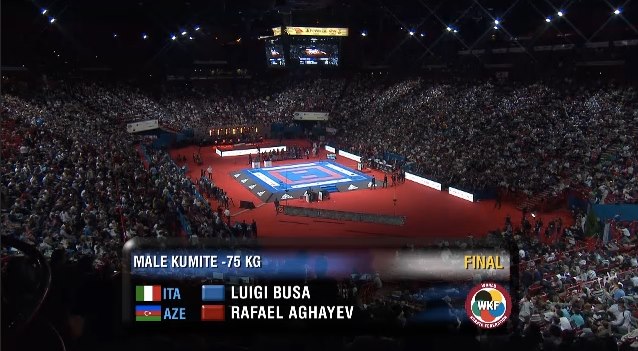
J: Tell me why!
LB: “First of all, because I had a leg injury. My ankle was broken. And then, fighting in Bercy Stadium with 20’000 spectators watching, against Aghayev, a 4-times World and 11-times European Champion, someone I consider together with me to be the best in the world, or even a little bit better than me… and then winning!? For me, it was truly indescribable.
Indeed, my feelings resulted in such a dance, Gangnam style, that when I watched it on video I couldn’t recognize myself! Very strong emotions that I wish everyone could experience, because my words can never adequately reflect that moment.”
J: I can imagine. How important is your competitiveness with rivals, like Aghayev?
LB: “I’m not friends with Aghayev. I respect him very much as an athlete though, and sometimes we go to parties after tournaments. I consider him a great champion. Maybe the greatest ever. But for me, the dance I did after defeating him at the world championships was not a tease. It was only a result of my joy that I let out, that’s it. I respect him very much. If he taunts me back, I don’t care. I take it with a laugh. No problems.”
J: Nevertheless, the audience seemed to enjoy it!
LB: “Well, at least we put on a good show too – unlike soccer!”
J: Indeed, and fighting is very emotional. It’s a primal instinct. On that note; exactly how important is the psyche in kumite?
LB: “In Karate, psychology is fundamental. If you have great techniques, strong arms and legs, but you don’t have a good head… you can’t be a champion. This is why I said earlier that the head is so important. It’s the mental side.
Indeed, nowadays in every sport there is a mental coach. This is particularly important in individual sports, where you can find yourself in an arena like Bercy Stadium with 20’000 spectators observing your every move. If your mind is not strong and trained, you can’t become very great at Karate.”
J: What about goal setting? What is your best advice for someone who wants to become a champion like you?
LB: “My best advice is this: Don’t see becoming a champion as an impossible target. Don’t see winning a World, European or National title as impossible targets. Maybe they are not easy to reach, but they are very possible. Again: You should have a good head, a willingness in your heart, and never stop feeling that fury, because if you don’t have that desire to reach your dreams there is always someone else who will take your place.
I’ve lost competitions because, having already won many things, my inner fury was partially diminished. But I always work a lot on it, because this is the curse of champions: They win a lot, and as result they lose their stimulus. They lose their goals. They forget that hunger they once had.”
A short counter-strike drill by Busà. See more on my YouTube channel.
J: Where does this hunger come from? What is your motivation for the “fury”?
LB: “I was born in the street. Therefore, I felt a strong desire to stand out in a clean world because the environment from which I come is not that clean. Sometimes you have to fight to stand out. Nowadays I win almost every fight, but many times I’ve done the mistake of not having that fury because I already felt lucky of having won a lot. My heart says this fury is essential.
In fact, sometimes you need to lose in order to spark this fury. For example, when I lost the recent World Combat Games final against Aghayev I felt that fury again. Now I can’t wait to take part to the next competition and face him again, because this event taught me a lot about myself.”
J: And, in the end, isn’t that the ultimate goal? To understand oneself. It’s time to wrap this interview up – thank you very much for taking the time to share your experience and insights with my readers.
LB: “No problem Jesse, it was my pleasure. Thank you very much!”
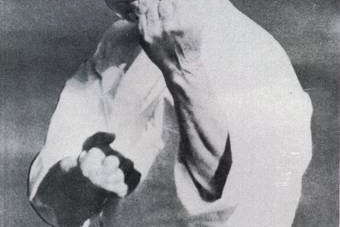

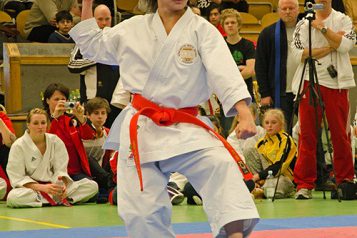
12 Comments